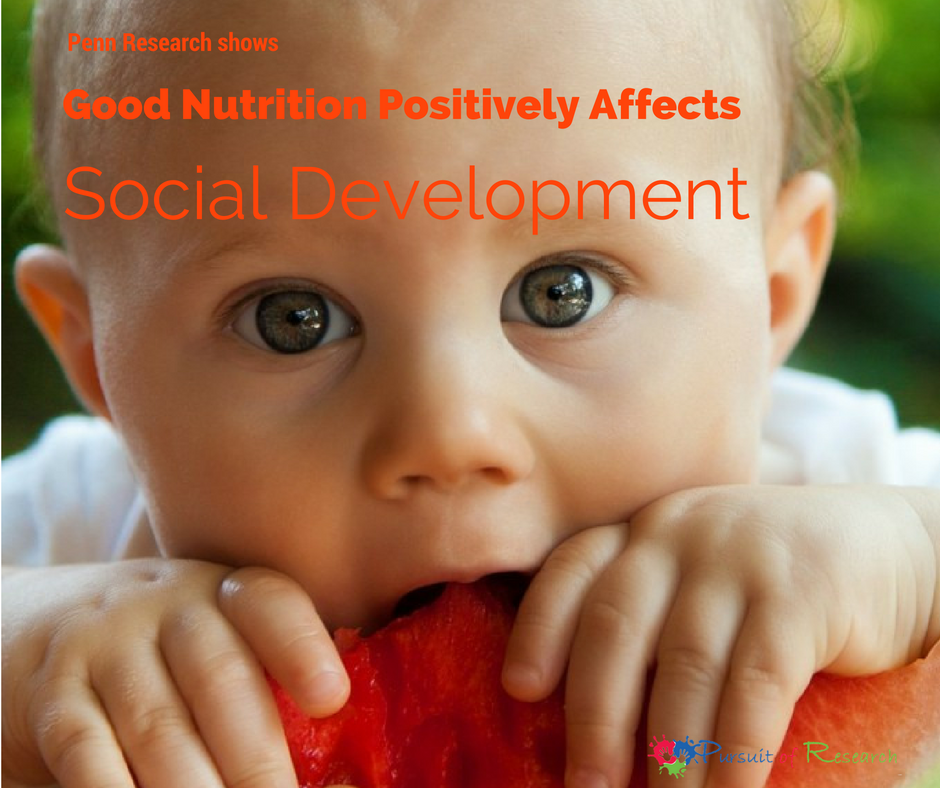Study finds good nutrition will enhance cognitive function and promote good social behavior, which is essential to brain development and intelligence.
The main finding of a new study from two University of Pennsylvania researchers has found proper nutrition during childhood can positively affect a child’s social behaviors and development. The results are published in the journal Maternal and Child Nutrition. The researchers found a number of nutritional markers including lack of vitamin B2 and niacin; and insufficient protein intake.
Social interactions studied included
- Friendliness
- Extent of verbalization
- Active social play
- Exploratory behavior
According to the key researchers Jianghong Liu, an associate professor in Penn’s School of Nursing and Perelman School of Medicine, and Adrian Raine, the Richard Perry University Professor of Criminology, Psychiatry and Psychology, a research assistant observed every child’s success and rated these factors on a specified scale. The observer knew that the research concentrated on child development and behavior but was unaware of the nutrition-related hypothesis.
For this study, the scientists analyzed a sample of 1,795 3-year-old children from Mauritius, an island off the eastern coast of Africa with a population of about 1.3 million people. They focused on four aspects of physical health related to nutrition and four indicators of social development. Despite the diversity of Mauritius, which has Indian, Creole and, to a smaller extent, Chinese, French and English populations, the researchers acknowledge a desire to replicate their findings in large cities in the United States.
“What people are not doing is looking at positive effects of good nutrition, in particular on social behavior,” said Raine, “We link nutrition to physical health but also social health and positive social behavior.”
Liu said it’s a gap in the research she hopes this work might bridge. “No one has looked at positive social behavior,” she said. “Childhood social behavior, even adult social behavior, has a lot of implications for physical and mental health and well being.”
 “The bigger message is give children good nutrition early on,” Liu said. “Not only will it enhance cognitive function but, importantly, promote good social behavior, which is essential to brain development and intelligence.”
“The bigger message is give children good nutrition early on,” Liu said. “Not only will it enhance cognitive function but, importantly, promote good social behavior, which is essential to brain development and intelligence.”
“In the same study,” Raine said, “we’ve shown that children with positive social behavior, eight years later, they have higher IQs.”It’s possible to reverse the effects of poor nutrition, too, according to the researchers.
“It’s never too late to provide good nutrients,” Liu said.
“And it’s never too early,” Raine added.
Funding for the research came from the National Institutes of Health/National Institute of Environmental Health Sciences, National Institute of Nursing Research and National Institute of Mental Health, along with a grant from the Ministry of Health in Mauritius.
